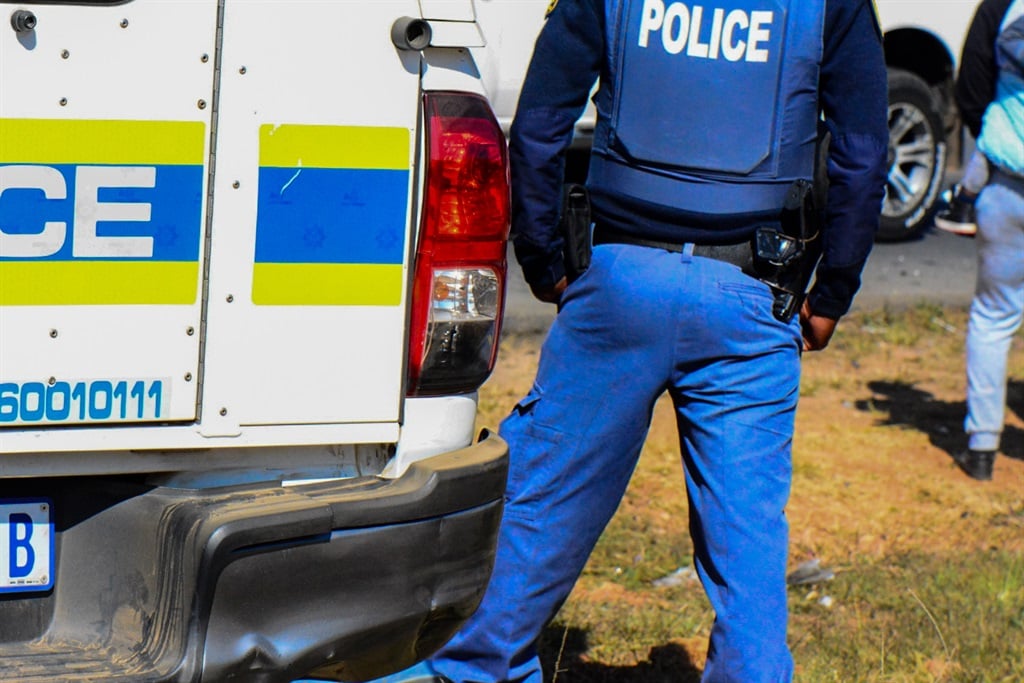
When economic and social systems don't contribute adequately to social cohesion – as in South Africa – policing has a critical role to play, writes David Bruce.
Rising levels of murder and robbery, gender-based violence, embedded organised crime and police corruption characterise South Africa’s crime crisis. Can the country's system of policing and safety be fixed? And if so, how?
Our continuing reference point for answers is the decade-old National Development Plan that advises strengthening police integrity and hiring skilled police leaders and personnel. Many other government initiatives have built on these recommendations: the Khayelitsha and Marikana commissions of inquiry; the 2017 report on democratic policing; the 2018 expert report on policing and crowd management; and the expert panel report on the July 2021 unrest.
Stagnation
But the government has never seriously engaged with any of these recommendations, although it sometimes claims to be implementing them. Instead, since the country's 'police transformation' of the mid-1990s, our policing system has largely stagnated; and, for at least the past decade, has been in decline.
The approach to South Africa's policing challenges consists primarily of recycling an old and ineffective formula. This includes further budgetary increases, more waves of large-scale recruitment, new task teams, or the claim that Community Police Forums will be reinvigorated.
READ | Crime stats: High levels of women abuse and murders are worrying – Police Minister Bheki Cele
Little is likely to be achieved until the government, at the highest level, recognises the need for a sustained and purposeful process to strengthen the South African Police Service (SAPS), and the overall system of policing and public safety. The potential for change will also hinge on whether political heads and top officials can make considered judgments about the policy options put forward in the various reports above.
What South Africa lacks is a blueprint for a more effective policing system. The government needs a stronger capacity to formulate a practical policy agenda that takes account of South Africa's complex and changing crime and safety problems.
The SAPS is South Africa's national police service. Given its size and dominant role in policing, reforming the institution should be a significant priority. Professionalising and building trust in the police must be fundamental to any such process.
Questions about the effectiveness of SAPS' leadership will have to be addressed. This is a precondition for improving systems for recruitment, training, strategic planning, procurement, integrity and the general management of police stations, public order policing units and other components.
Another fundamental issue is whether the SAPS, metropolitan police, and other components of the state policing system can be expected to 'provide security' in a comparable way to policing in Western countries. If this isn't realistic, government policy should place more emphasis on the role of other groups in policing and local safety.
Role of private security
One aspect of this is private security. The expert panel report on the July 2021 unrest, for instance, motivates for better integration of private security into the policing system. In many parts of South Africa, notably where residents cannot afford private security, community patrol systems have expanded.
The National Development Plan acknowledged the need for community members to supplement policing. It recommended that local volunteers be deployed to 'at-risk schools, health clinics, pension- and grant-payment points, taxi ranks, parking spaces, open fields' or 'areas with poor street lighting.' The plan said this would 'provide safety to the public through visibility and safety in numbers' and serve as an information channel for police and other government departments. The role of community-based structures in policing and safety was debated briefly during the police reform process in the early 1990s. For various reasons, including concerns about their links to criminality, and levels of education and training, the idea that they should be integrated into the formal policing system was rejected.
READ | ANALYSIS: Guy Lamb - Will 2022 be the SAPS's watershed year?
Instead, the country adopted an orthodox Western approach to policing, in which the SAPS would provide police services, and community police forums – composed of police and residents' representatives – would manage communication and partnerships.
There is clearly a need to revisit assumptions about how the policing system should function, and particularly what role the SAPS should play in it. This requires a better understanding of the complementary part that other types of policing formations can play, and the responsibilities of state policing agencies in these partnerships.
Chronic violence and crime show that our society is deeply 'criminogenic' – meaning that social conditions in South Africa are conducive to high levels of offending. Building a safer country depends partly on addressing the socio-economic foundations of criminality, which requires giving people access to more stable incomes, decent accommodation, education and healthcare.
But a social order is the foundation of a functioning society. When economic and social systems don't contribute adequately to social cohesion – as in South Africa – policing has a critical role to play.
Strengthening the SAPS, and the overall policing system that includes other safety actors is essential to give South Africa a firm foundation for genuine progress towards a more inclusive, stable and just society.
- David Bruce, is an Independent researcher and consultant at ISS Pretoria.
*This article was originally published on Daily Maverick.
Disclaimer: News24 encourages freedom of speech and the expression of diverse views. The views of columnists published on News24 are therefore their own and do not necessarily represent the views of News24.




 Publications
Publications
 Partners
Partners























